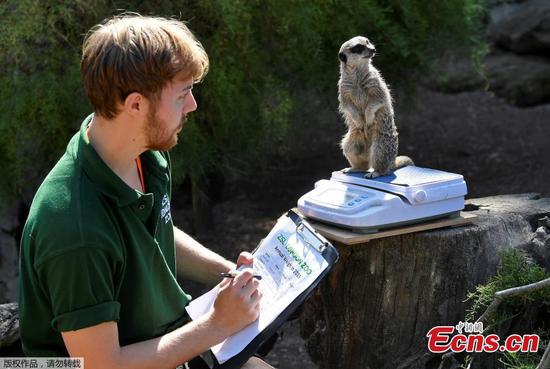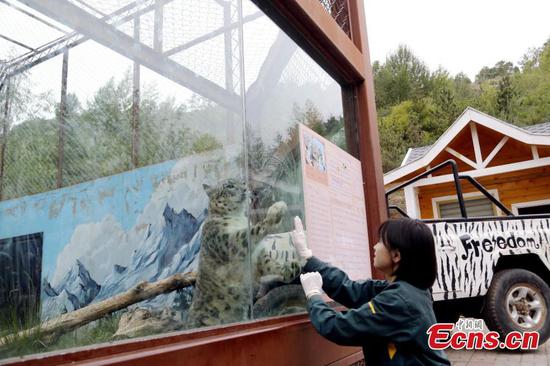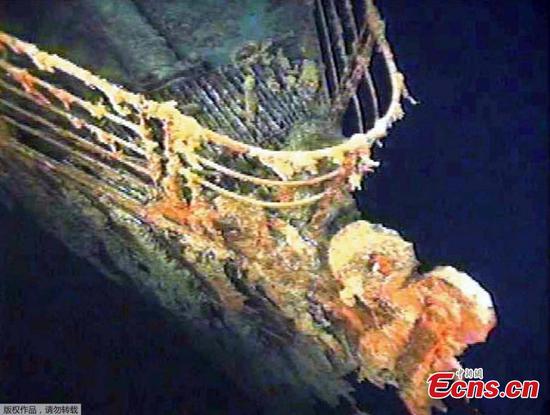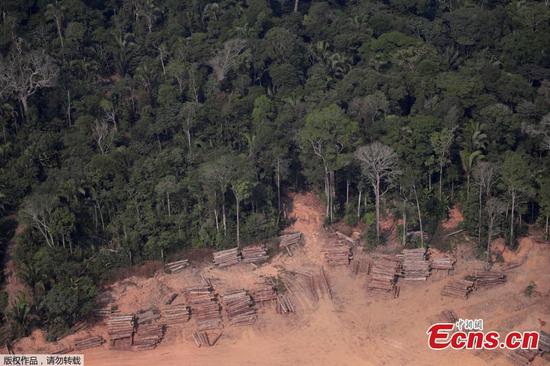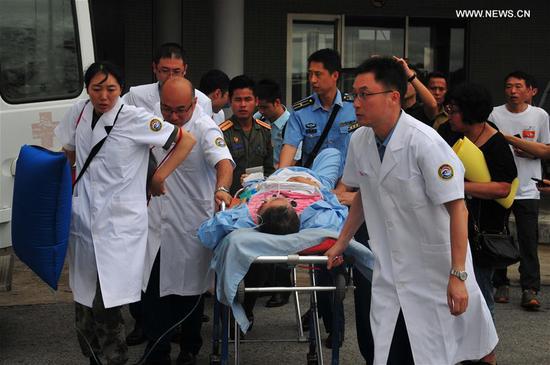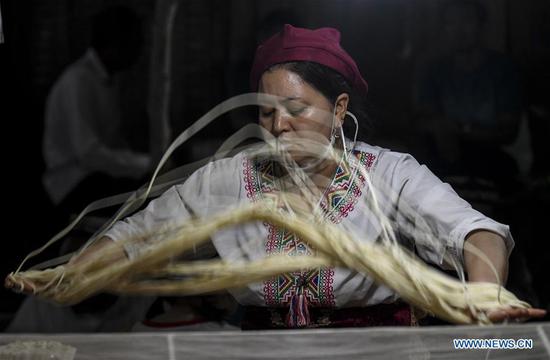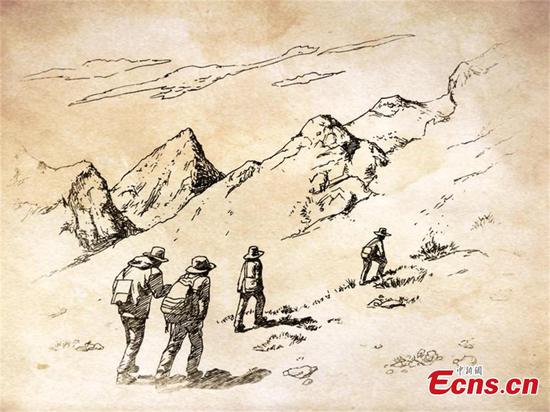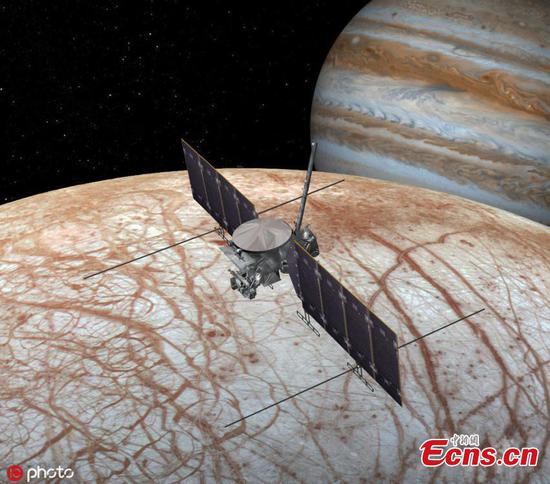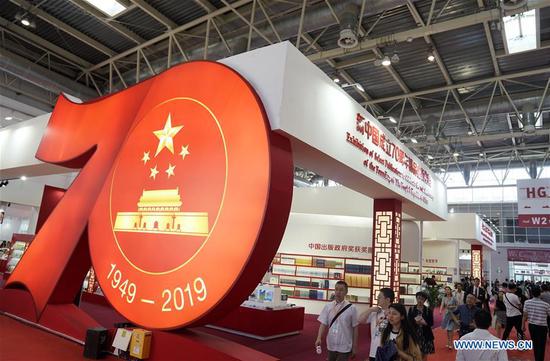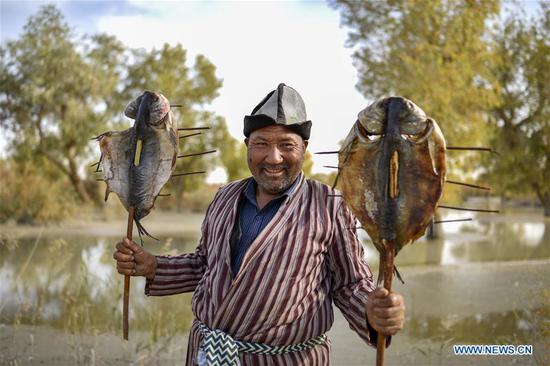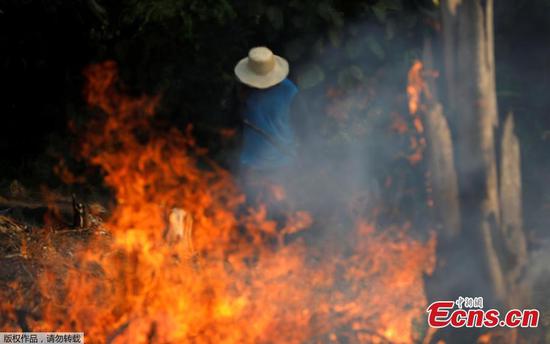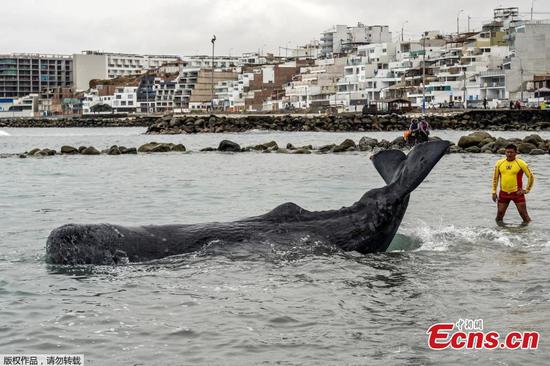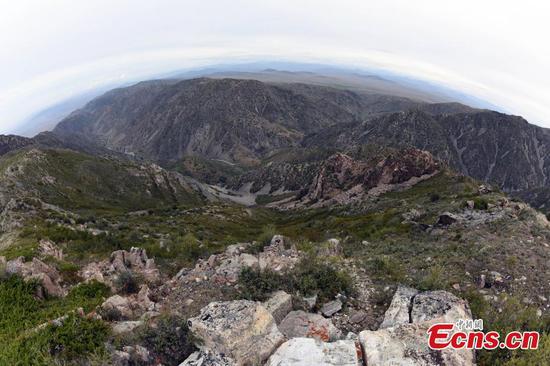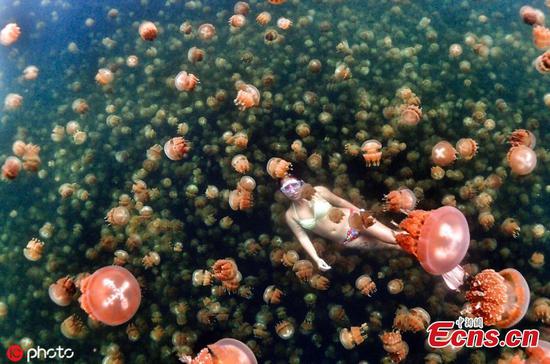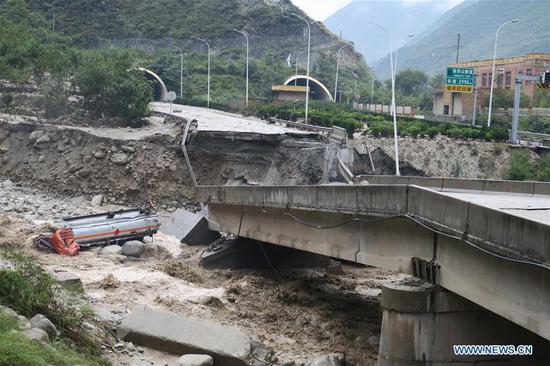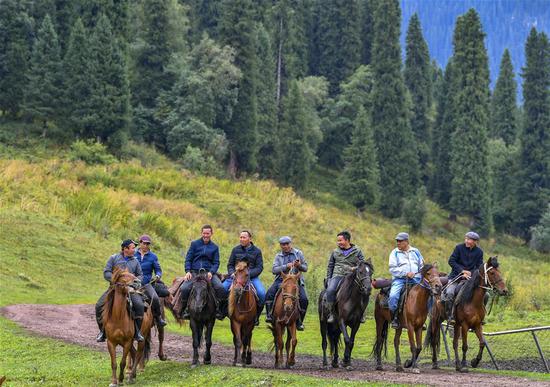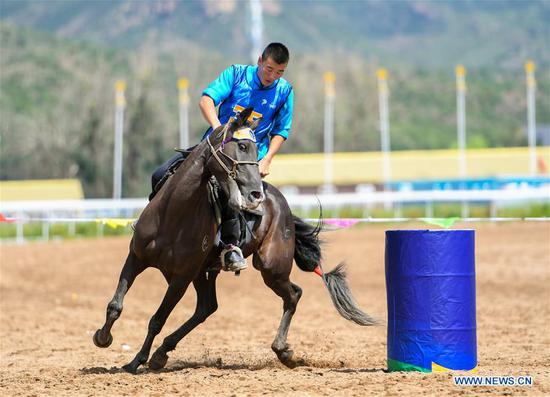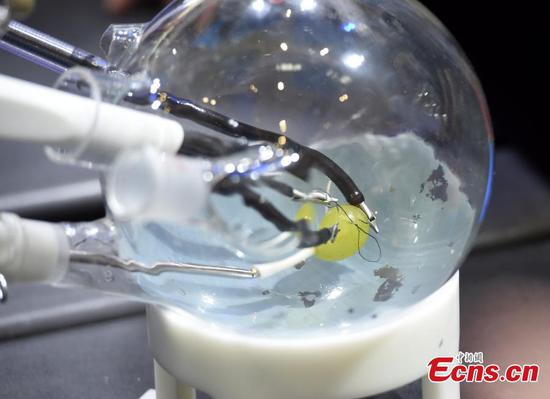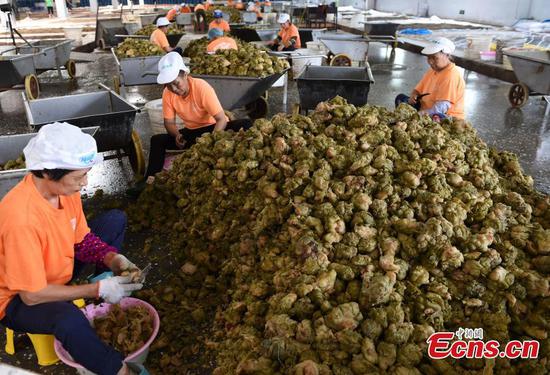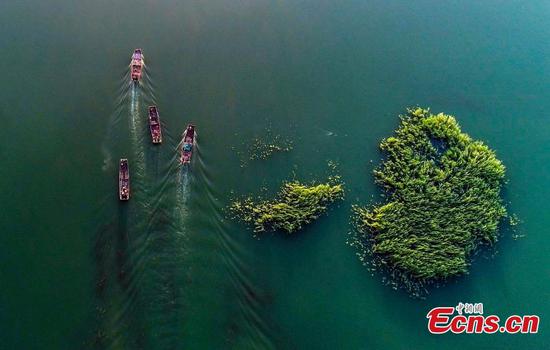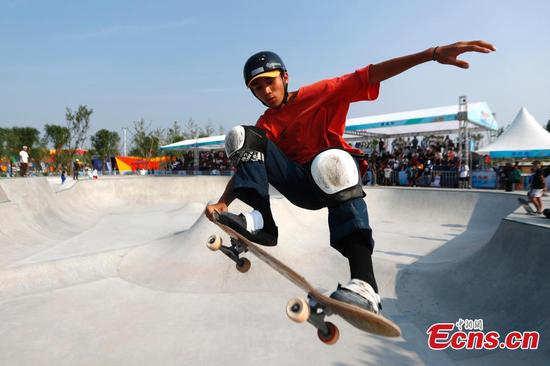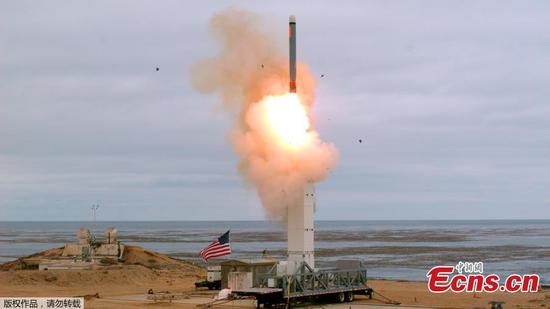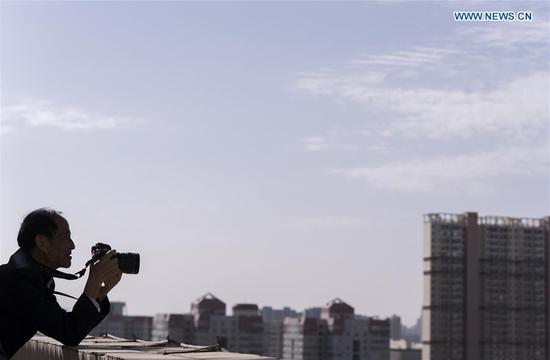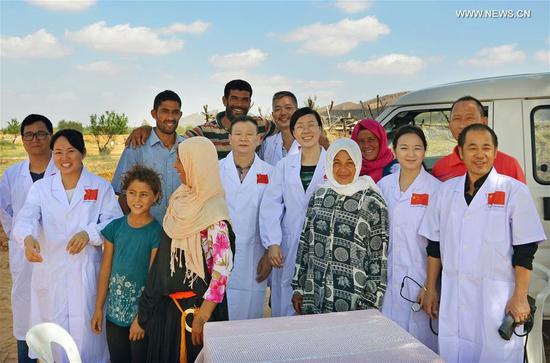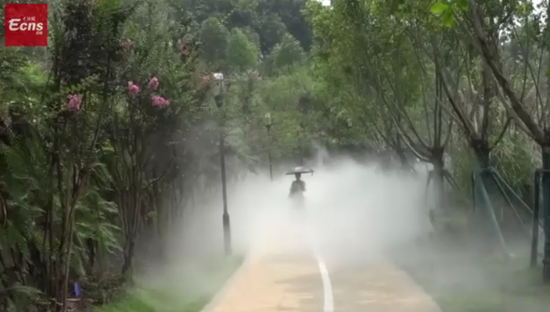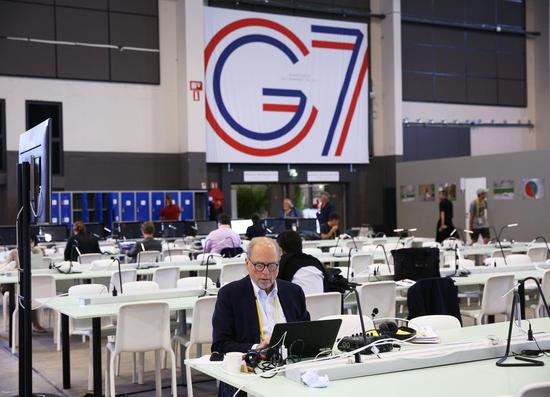
Journalists work at the G7 summit press center in Biarritz, southwestern France, Aug. 23, 2019. (Xinhua/Gao Jing)
Leaders from the world's seven most industrialized countries started the divided group's 45th summit, clouded by a pile of tough issues with trade tensions high on agenda, on Saturday evening at the French seaside resort Biarritz.
After an informal welcome at the landmark lighthouse overlooking the extremely heavily secured small town, French President Emmanuel Macron and his guests -- Angela Merkel (Germany), Boris Johnson (Britain), Justin Trudeau (Canada), Giuseppe Conte (Italy), Shinzo Abe (Japan) and Donald Trump (the United States) -- will strive to search for common ground amid worsening divergency in next two days.
Tough issues piled on the agenda: tightened trade tensions, trans-Atlantic relations at historical low, climate challenges with unprecedented fires in Amazon rainforest, Brexit with a highly probable scenario of no-deal, Iran nuclear deal at stake, Russia-Europe relations as well as digital taxation dividing not only Brussels and Washington but also members within Europe, just to name a few.
"This meeting is useful, important ... otherwise we would have to divide among ourselves," said Macron in a televised speech earlier in the day.
Conflicts relating "Iran, Syria, Libya, Ukraine and several other international crisis" will be discussed. "Tensions, especially commercial ones, are bad for everyone. We must succeed in reaching a de-escalation, stabilise things and avoid this trade war which is already taking place everywhere," he added.
On climate and biodiversity, Marcon urged the summit to answer the emergency calls of the ocean and the forests burning in Amazon while regretting the division between Europe and the US.
The trans-Atlantic rift cuts even deeper days ahead of the summit as Trump offered to buy Denmark's Greenland and, when rejected, called the Danish prime minister's statement "nasty" and cancelled, via a tweet, his planned visit to the European country.
On the eve of the summit he reiterated criticism of a French proposal to levy a tax aimed at big US technology companies and threatened again to retaliate by taxing French wine. Last month, he blasted Macron's "foolishness" in a tweet.
EU will respond in kind if Trump slaps tariffs on French wine, warned Donald Tusk, president of the European Council, in his pre-summit briefing earlier this morning.
"If Trump uses tariffs for political reasons, it could be dangerous for the whole world, including the EU," he added. "Trade wars among G7 members will lead to eroding the already weakened trust among us."
"It is increasingly difficult, for all of us, to find common language and the world needs more of our cooperation, not less," he said, adding "this may be the last moment to restore our political community."
Upon arrival at Biarritz airport, Johnson also said he would be telling Trump to pull back from a trade war which is already destabilising economic growth around the world.
"I am very worried about the way it's going, the growth of protectionism, of tariffs that we're seeing," he told reporters.
"Trump would not expect any kind of warm welcome in Biarritz. He does not really care much about G7. He is very much defiant to all international bodies in in general, and he knew in the first place that other leaders in the G7 would be very much opposed to him," Remi Bourgeot, an economist and associate fellow at The French Institute for International and Strategic Affairs (IRIS), told Xinhua.

US President Donald Trump and French President Emmanuel Macron attend a lunch ahead of the G7 summit in Biarritz, France August 24, 2019. [Photo/Agencies]
At noon, Marcon and Trump had an unscheduled work lunch. Hours later, European leaders Merkel, Macron, Tusk, Johnson and Conte held a pre-summit coordinating meeting.
On Sunday, leaders of the G7, partner countries and international organizations invited by France will start their work sessions. Presentation of a report on equality, work sessions on climate and bilateral meetings are programmed.
On Sunday evening, the heads of the delegations will pose for their traditional family photo. They will give a concluding press conference on Monday afternoon.
Last year's Quebec summit in Canada ended without a communique, the first time in G7's history since 1975. Trump put the group's solidarity at question by leaving early.
In 2017 the summit in Italy ended with stalemate over Paris climate accord. Weeks later, Trump pulled the US out of the agreement.
Foreseeing the rowing pals would not reach any substantial consensus, the French presidency had stressed on the "very informal" character of the gathering.
"We will talk about strategic issues of security, trade and world economy in a very informal way. We will see whether there is question of issuing communique," Macron told media earlier this week.
About 30 km away from Biarritz, alter-globalisation activists are organizing their counter-summit on the French-Spanish border. On Friday night, protesters clashed with the security forces, resulting in 17 arrests and several police lightly wounded.
To neutralize all violent protests is one of the top priorities of the heavily armed security forces, including 13,200 paramilitary, according to the French authorities.









